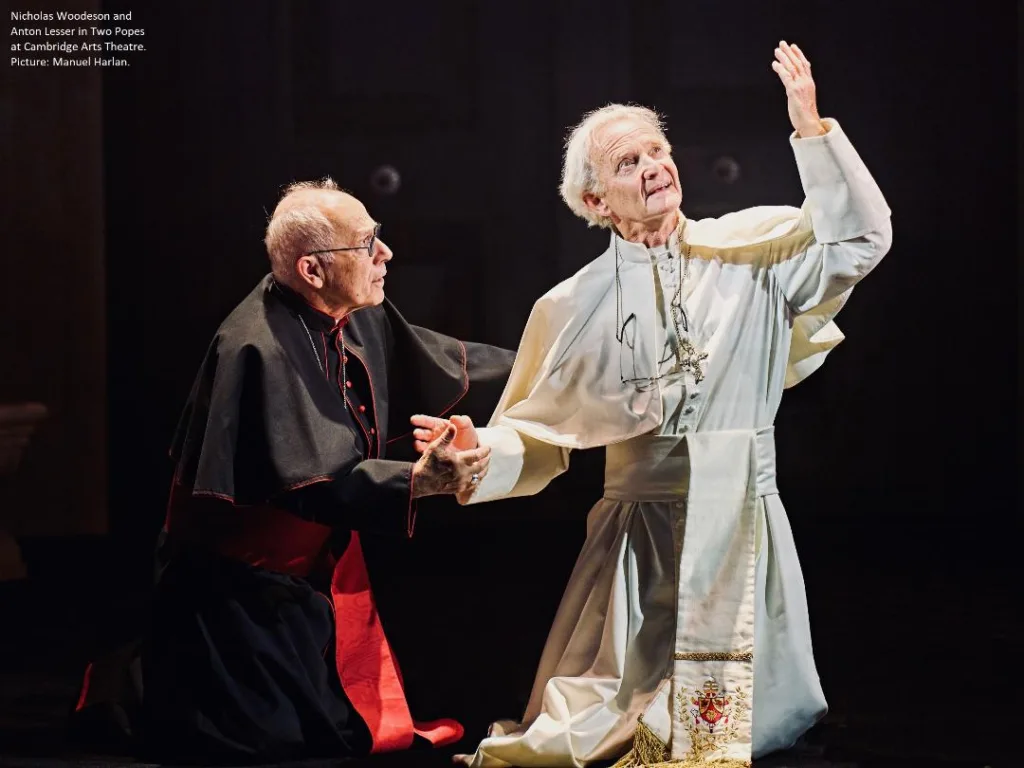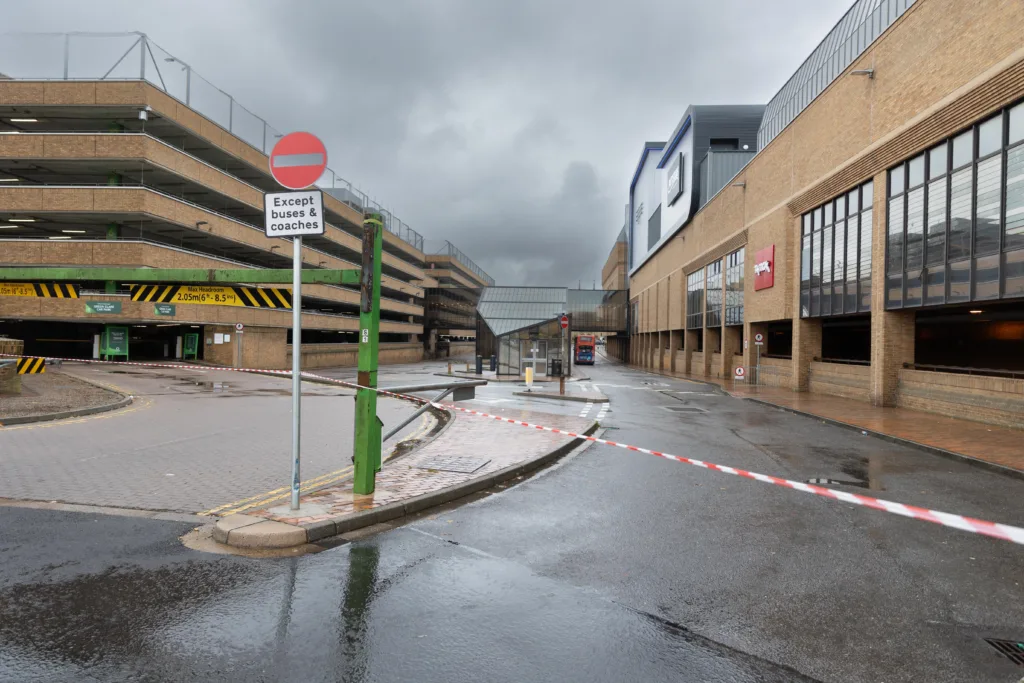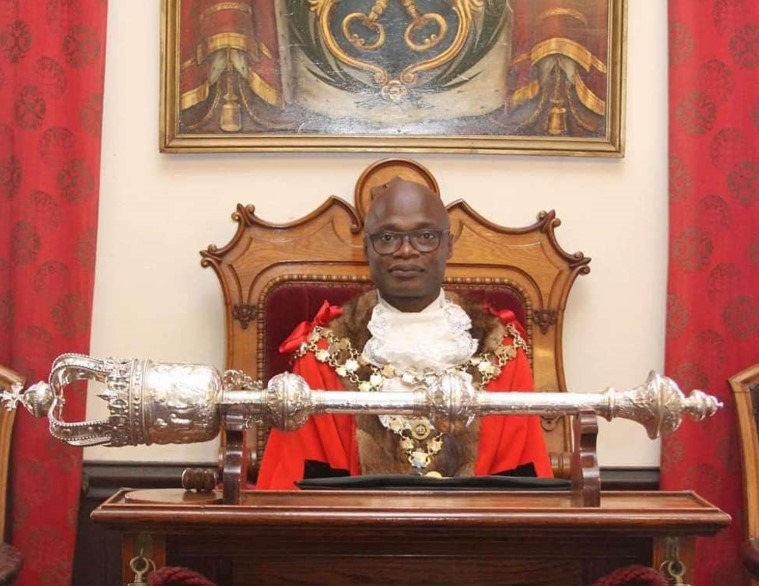One might assume that candidates for the role of pope are volunteers.
It is the top job in the Catholic Church after all. Isn’t it what they all aspire to?
No. According to Anthony McCarten’s intriguing play (The Two Popes, at Cambridge Arts Theatre this week), neither of the current two popes wanted the role.
As the conclave was voting, each was praying: “Don’t let it be me.”
This is a witty play. Anton Lesser as Pope Benedict XVI – the one who broke with a 700-year tradition and resigned – and Nicholas Woodeson as Cardinal Bergoglio, now Pope Francis, who took his place, are magnificent.
Ironically, before he knew the pope was going to resign, Bergoglio himself had wanted to step down as a Cardinal – let alone become pope.
These are two performances of power, stature – and nuance. As the play develops, we see different aspects of each man: proud, humble, energetic, tired, devout, and doubting.
There is strong support too from Lynsey Beauchamp as the faithful German Sister Brigitta and Leaphia Darko as the young Argentinian nun, Sister Sophia who has a touch of humour.
Each of the women try to persuade each of the men that they cannot leave their role.
When Pope Benedict, the German Joseph Ratzinger was elected in 2005, the Argentinian, Jorge Bergoglio had come second.
He was runner up as the conclave’s choice. When Ratzinger resigns, eight years later in 2013, Bergoglio, whether he wishes it or not, is right in line. This time, he gets voted in.
The play brings the two men together as Cardinal Bergoglio travels from Argentina to Rome to see the pope because he wants to resign as a cardinal.
Instead of signing the papers to allow him to go, Pope Benedict insists that he remain a cardinal because he thinks Bergoglio is his best replacement.
Nicholas Woodeson is charismatic when the white smoke goes up and he gives his pope’s acceptance speech at the front of the stage.
His power is in his humility and naturalness. “I am a humble worker in the Lord’s vineyard.”
When he took his momentous decision to step down, Benedict was 86. He said he was tired.
In the play, he asks plaintively: “Who gets a new job at 78?” He is portrayed as a scholar, more of a recluse than a man of the people, liking his luxuries, playing the piano, quietly watching television, enjoying the German food of his childhood.
He believes the Catholic Church’s strength is its resistance to change.
By contrast, the current Pope Francis, who is now 85, is shown as wanting the church to adapt. He has worked with the poor.
He has been a bouncer at a tango club, he is shown as loving football and even having had a girlfriend. On his election as pope, he refuses to live in a palace or even to wear the traditional pope’s red leather shoes – at least until his own have worn out.
This is a tour de force of performance which brings out the humanity, the shortcomings, and the strengths of two chaps just doing a job.
The Two Popes is at Cambridge Arts Theatre until Saturday, October 1.
EDITOR’S FOOTNOTE: Angela Singer is theatre critic for CambsNewsOnline





















